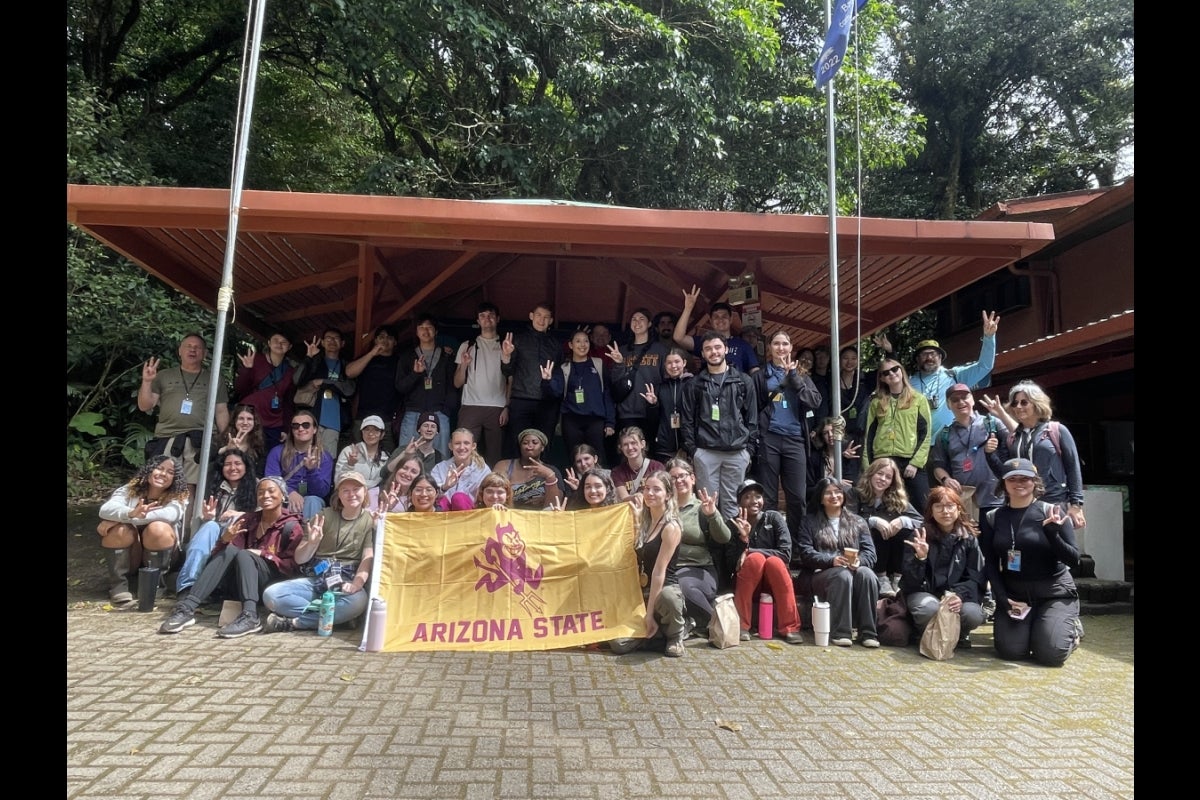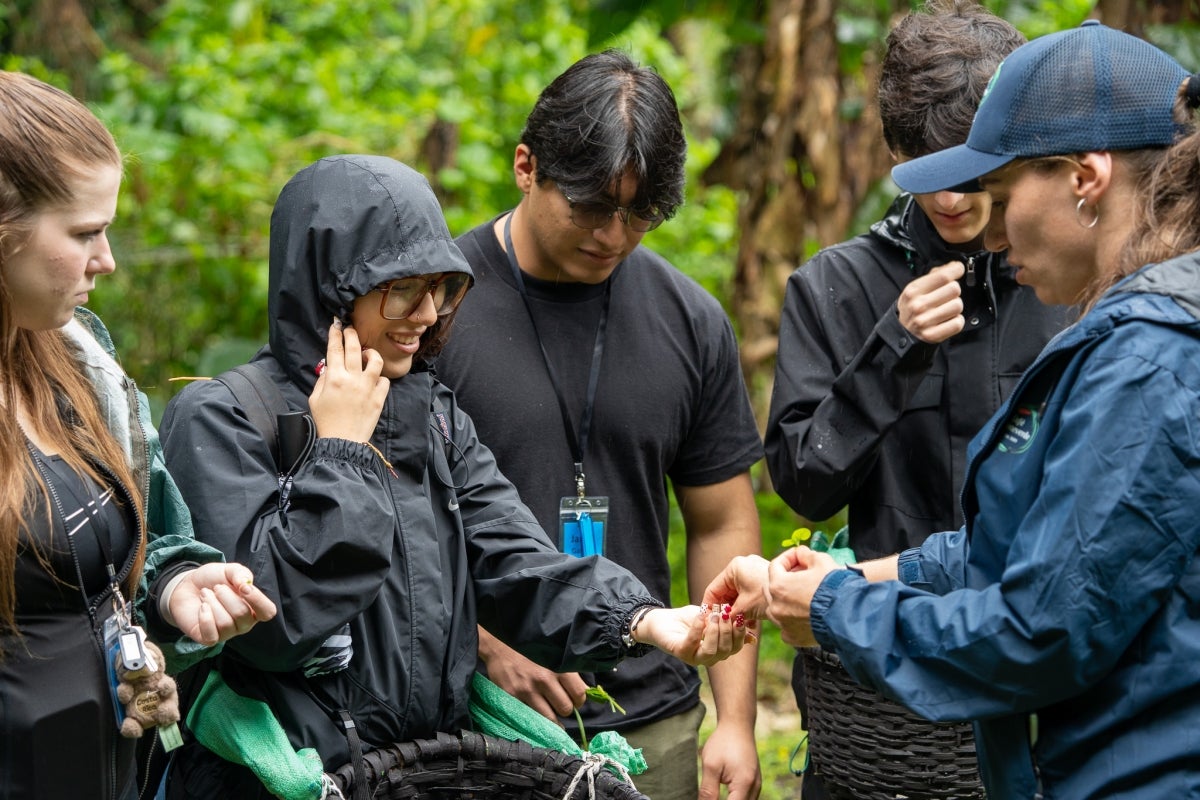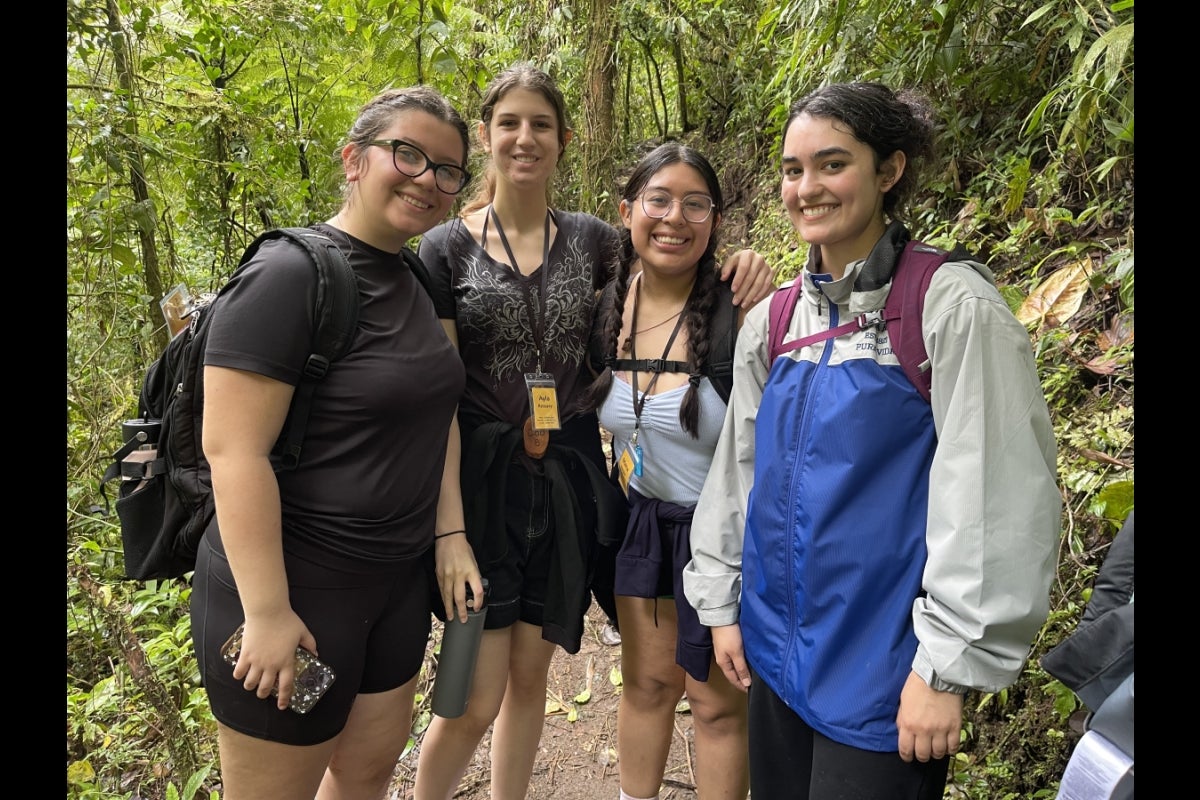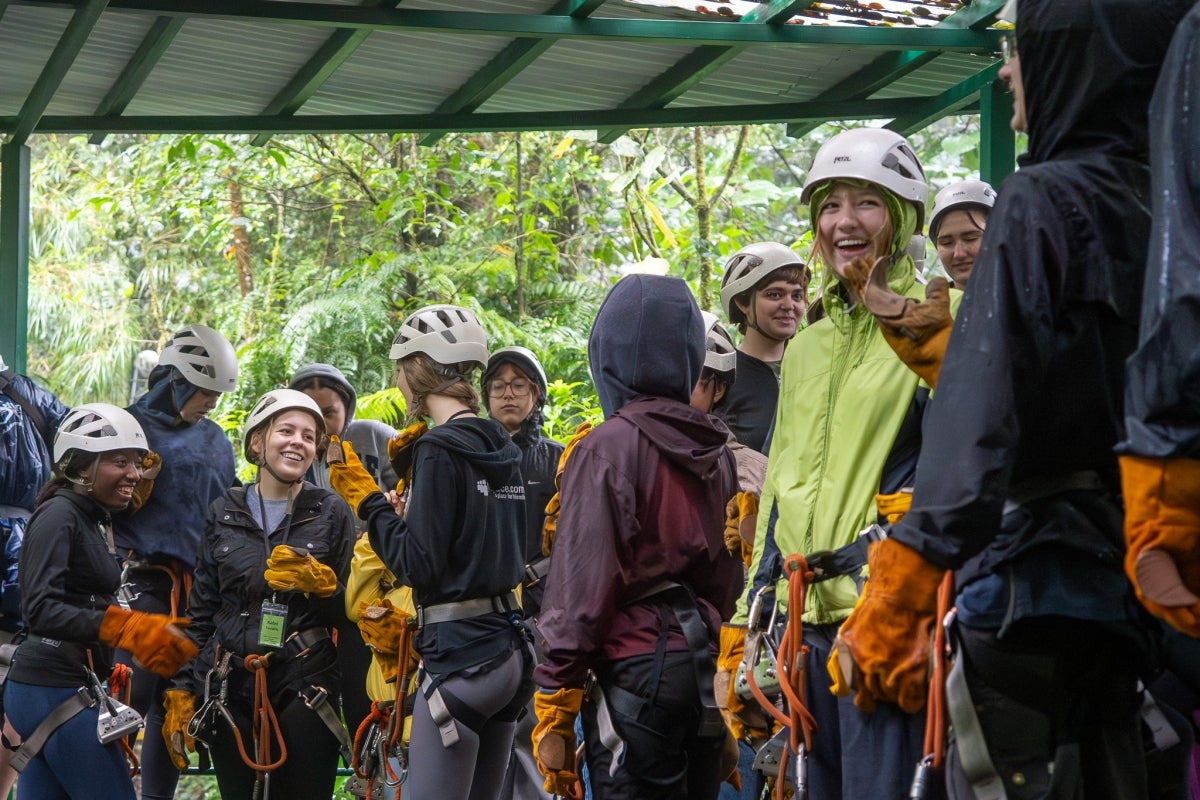First-year students get immersive cultural, sustainability lessons in Costa Rica

Early Start students Luc Leopard, Brody McCarran and Jenna Applegate hold up a pitchfork with Associate Dean Paul LePore during a hike to the El Tigre waterfalls during their winter 2024 study abroad trip in Costa Rica. Photo courtesy of the Global Education Office
Studying abroad can be a life-changing experience for any student, let alone a new student who just completed their first semester in college.
That's what more than 50 Arizona State University students who are part of The College of Liberal Arts and Sciences' Early Start program had the opportunity to do over winter break.
The Early Start program is discipline-specific, two-week immersion program that helps incoming first-year students gain the necessary tools for a successful college career. Students start at ASU nine days before the semester begins, meeting professors, making connections and getting a head start on life as a Sun Devil.
And now they can add a study abroad experience to that list with the Early Start Global Accelerator in Costa Rica study abroad program.
In the new program, students study sustainability, culture and history in one of the world’s most ecologically diverse regions — Monteverde, Costa Rica.
“My mom and I stayed up until midnight waiting for the applications for Costa Rica to open,” said Aaliyah Washington, an Early Start participant. “When I finally got accepted, I called my mom immediately. We screamed, and she started crying because she was so happy. Because I'm a first-generation student, it’s all new for us.”
Nestled in the cloud forest of Costa Rica, Monteverde is a delicate ecosystem, home to thousands of different species — the perfect place to study sustainability hands-on. Students explored farms, regenerative farming, wildlife preserves and mountains, giving them a sense of why sustainability is integral to the Costa Rican ecosystem.
“Learning about climate change, you often learn what’s bad,” said Kamalei Pahukula, an anthropology major. “Coming here and learning about what’s good — seeing it in practice, and that it’s working — was so amazing. I learned that there’s hope through sustainability. Not only to decrease the negative, but increase the positive.”
The Global Education Office worked with the ASU Passport Acceptance Office to fund and secure the students’ first passports.
Maria Vargas Cesario grew up in Glendale, Arizona, and chose ASU because it gave her a chance to be close to her family, whereas this study abroad program gave her a chance to spread her wings.
“I’ve never traveled internationally before. I didn’t even have a passport before going to Costa Rica, and ASU helped me get it,” Vargas Cesario said. “This was my first time leaving the country. I’d never been to an airport or packed a suitcase other than for my dorm room.”
The Early Start program supports students who face challenges in transitioning to college. Many participants are first-generation students, like Vargas Cesario and Washington, or have high financial need, making them more likely to encounter obstacles in their college journey.
“Starting college as a first-generation student — oh my god — so nerve wracking,” Vargas Cesario said. “But Early Start helped me find my community. My mentor, Dr. (Rhian) Stotts, guided me through so much and made me feel comfortable. I am so grateful for that because without Early Start I would have never been so confident or ‘out there.’”
Coupling the experience of Early Start with an end-of-semester study abroad program helps students be successful through college and life after graduation.
“The Early Start Global Accelerator in Costa Rica program is designed with student success in mind,” said Shira Burns, the associate director of faculty-directed programs in the Global Education Office. “There is no better catalyst for learning than experiencing a new and different place, and this program does just that.”
Three ASU faculty members in The College led the students through their study abroad in Costa Rica: Paul LePore, associate dean of student and academic programs in The College; Jessica Early, Department of English professor; and Zachary Shaffer, assistant teaching professor in the School of Life Sciences. The faculty met with students weekly during a session B class.
“One of the things I am hoping students will walk away with is that they will use this as a launching pad for things they’ll do next,” LePore said. “I hope they see this as an opportunity to take control of their educational journeys, and to do things that will really make their college experience special.”
“The whole experience has been very meaningful to me especially because I feel like ASU sees me for who I am,” Vargas Cesario said about her study abroad, the Early Start program and her first semester as a whole. “I never knew how much ASU cares for each of their students, sees them for who they are and wants them to grow as a person to be who they want to be. I’ve never had that before.”
The study abroad program is made possible through the $1M Leading Change grant awarded to the Global Education Office through the Council on International Education and Exchange.
One hundred and fifty Early Start students will travel to Monteverde over winter break yearly during the next four iterations of the Early Start program in The College. Students who wish to participate in Early Start will be selected next summer, with applications to study abroad opening at that time.
More Environment and sustainability

Switching to 'green' plastic alone won’t solve the plastic problem, study shows
Plastic is everywhere. Today alone, you have probably already touched a whole lot of it, whether it’s your phone case, sunglasses, a grocery bag or your water bottle. It’s no news that plastic…
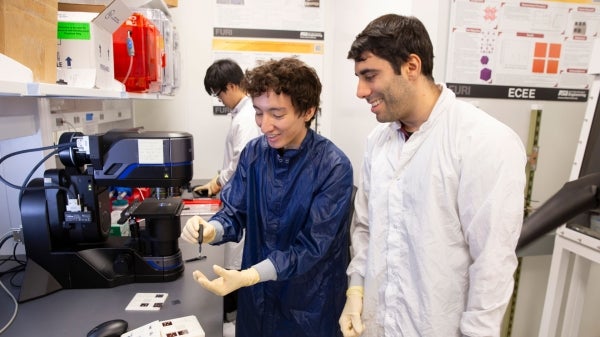
ASU prof turns trash into treasure
The Research Corporation for Science Advancement, or RCSA, regularly hosts a series of discussions known as Scialog, a portmanteau of science and dialogue. Created in 2010, the Scialog format…

Best outdoor experiences are shared and build connections, recreation professor says
Steve Sassaman doesn’t really need to tell you he’s an outdoorsman. One look at his full, dark beard gives a vibe that clearly says he knows which end of the kayak to put into the water first.While…
